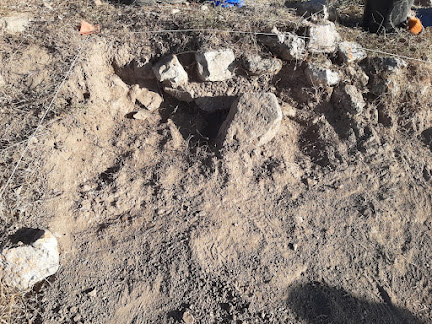The hidden meaning of Arvanah's name

Shanah Tovah to everyone and have an easy fast. A quick realization that I came to shortly before Mincha yesterday: In Shmuel 2:24:18 , David was commanded to build an altar in a place in Yerushalayim called 'Goren Arvanah ha'Yevusi (The Threshing Floor of Araunah the Jebusite)'. Since it was owned by Arvanah, David it bought it from him and built the altar. This story is also recounted in greater detail in Chronicles 1:21:18-28 . Here Arvanah is called 'Ornan'. Subsequently , David decides that the Temple should be built there, and that project was completed by his son Shlomo ( ibid. 2:3:1 ). In other words, this place would become the final dwelling place of the Ark of the Covenant. Now here's what's really fascinating: The name Arvanah, as it's spelled in Shmuel - ארונה - is made up of the word ארון and the letter ה = the word 'Ark' and the letter Heh, one of the letters of the name of Hashem. I.e., the name Arvanah equals Aron H' ('אר
